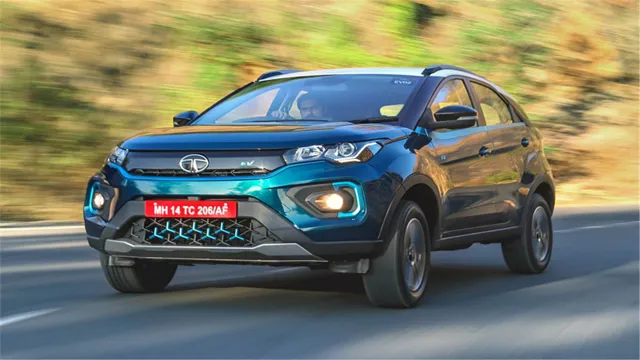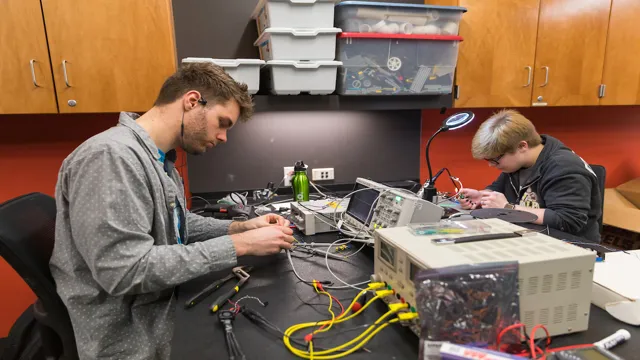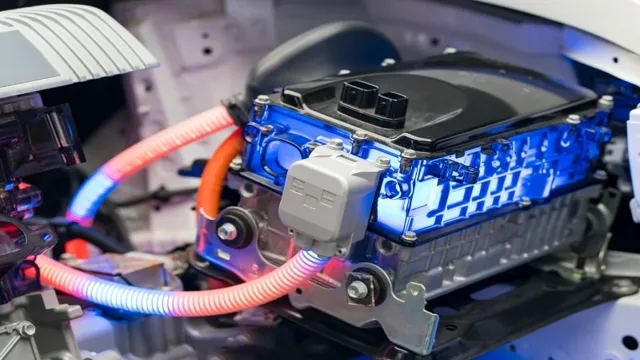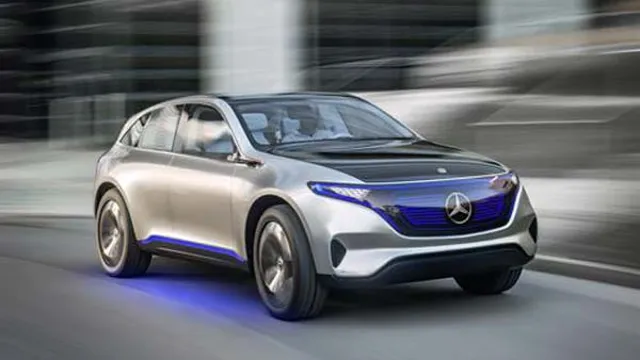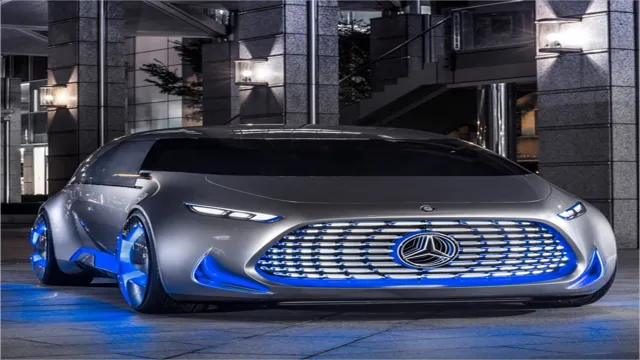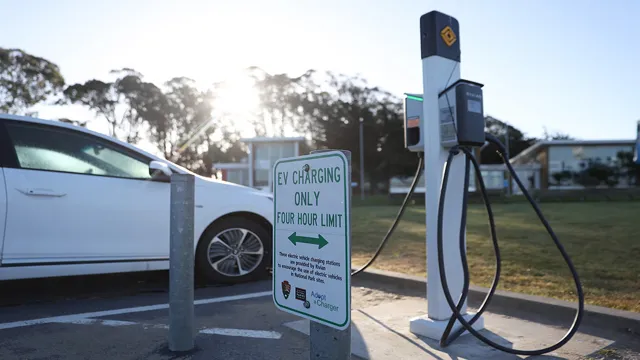Revving up India’s Green Revolution: Exploring the Electrifying World of Electric Car Technology
Who knew that India, known for its notorious traffic jams and pollution levels, would become a hub for electric car technology? With the global shift towards eco-friendliness and sustainable living, the Indian automobile industry has been quick to adapt. Electric cars were once considered a luxury but now, with the constant technological advancements, they are becoming the future of transportation. In India, the introduction of electric cars has been a game-changer, and the market continues to grow at a rapid pace.
Let’s take a closer look at the electric car tech in India and how it is shaping the automotive industry.
Current State of Electric Cars
Electric car technology in India is currently in a state of growth and development. With rising concerns about climate change and the need for sustainable transportation, the demand for electric cars has increased significantly. Major automakers have started to introduce electric car models that are more affordable and come with better features.
The Indian government has also taken steps to promote the adoption of electric vehicles, offering incentives to both manufacturers and buyers. Despite these positive developments, there are still challenges to be addressed, such as the lack of charging infrastructure and affordability issues. The technology for electric cars has been improving rapidly, and with continued investment and research, we can expect to see more advancements in the near future.
It’s an exciting time for the electric car industry, and India is poised to make significant progress in this important area.
Low Market Share
Despite the push for more eco-friendly options in the automobile industry, electric cars still have a low market share. In 2020, electric cars comprised only 6% of global car sales, indicating a long way to go before they become the norm.
One reason for this low adoption rate is the high cost of electric cars as compared to traditional gasoline-powered vehicles. Additionally, consumers are concerned about battery life, charging times, and accessibility to charging stations while on the road. However, with recent technological advancements in battery life and charging infrastructure, electric cars are becoming more accessible and affordable.
Furthermore, governments worldwide are providing incentives, such as tax breaks and subsidies, to encourage consumers to switch to electric cars. In the long run, as electric cars become more mainstream, their market share is bound to grow, leading to a reduction in harmful emissions and a positive impact on the environment.
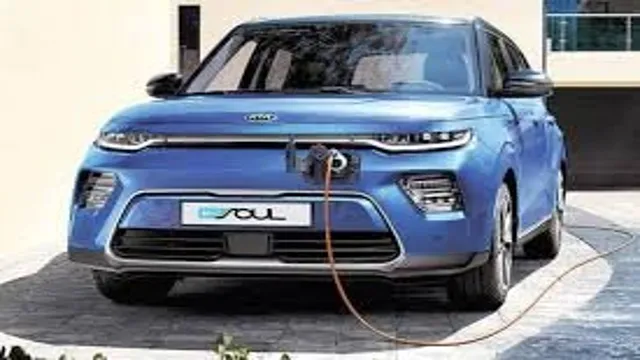
Charging Infrastructure
The current state of electric cars is highly dependent on the availability and accessibility of charging infrastructure. While the sales of electric cars have been steadily increasing, many potential buyers are still deterred by the fear of running out of power on the road and being unable to find a charging station. This concern is not entirely unfounded, as there are still many areas where the charging infrastructure is lacking or insufficient.
However, thanks to government incentives and collaborations between automakers and charging companies, the number of charging stations is quickly growing. The key to accelerating the adoption of electric cars lies in the development of a robust charging infrastructure network that is convenient, reliable, and affordable. With more charging stations readily available, electric car owners can travel with peace of mind and enjoy the many benefits that come with driving a low-emission vehicle.
Government Incentives
Electric car technology is rapidly gaining traction in India, and the government is doing its part to incentivize the adoption of this eco-friendly mode of transport. The government has launched various schemes aimed at promoting electric vehicles, including offering tax rebates, financial grants, and subsidies to those investing in electric car technology. Additionally, the government has announced plans to implement a nationwide electric vehicle policy to support the growth of electric car technology in India.
The increasing demand for electric cars has also led to the establishment of more charging infrastructure across the country. With these government incentives, it’s clear that electric car technology is on the rise in India and is set to become a significant player in the transportation industry in the future.
FAME II Scheme
FAME II, Government Incentives If you’re considering purchasing an electric vehicle (EV), you may want to take advantage of the Government’s FAME II Scheme. FAME stands for Faster Adoption and Manufacturing of Hybrid and Electric Vehicles, and its primary objective is to incentivize adoption of EVs in India. Under this scheme, the Government provides financial incentives to consumers purchasing electric cars, buses, and two-wheelers.
These incentives vary depending on the type of vehicle and the battery capacity. The maximum incentive for a two-wheeler can be up to Rs 15,000, while for a car, it can be up to Rs 5 lakh.
The FAME II Scheme also provides incentives for the creation of charging infrastructure in the country. The Government has set a target of having 5000 charging stations across the country. It is a step towards making EVs a mainstream option for people in India.
So, if you’re planning to go electric, take advantage of the FAME II Scheme and contribute to a cleaner and greener India.
Reduced GST Rates
Reduced GST Rates Good news for small businesses and consumers as the government has announced reduced GST rates. This decision comes as part of the government’s efforts to revive the economy and support businesses in the post-pandemic world. Small and medium-sized enterprises, in particular, have been struggling with the high GST rates, so this move will provide some much-needed relief.
The reduced GST rates will be applicable to a range of goods and services, including essential items such as medication, household goods, and food items. This will help to reduce the cost of living and make it more affordable for people to purchase essential items. The government incentives have been designed to encourage companies to invest in the economy and create more jobs.
By reducing GST rates, businesses will be able to save money and reinvest it in their operations, which will help to create jobs and boost economic growth. The incentives will also make it easier for companies to pay their bills on time, which will help to improve cash flow and reduce the risk of bankruptcy. Consumers will also benefit from the reduced GST rates, as the cost of essential items will become more affordable.
This will help to ease the burden on low-income households and ensure that they have access to the items they need. The government’s decision to reduce GST rates is a welcome move, and it will help to revive the economy and support small businesses and consumers. This is a clear indication that the government is committed to supporting the people and helping them to recover from the effects of the pandemic.
Economic Benefits of Electric Cars
With the increasing focus on reducing carbon emissions and promoting sustainable development, electric car technology in India has become a key area of interest. The benefits of using electric cars are not just limited to environmental effects, but also have a positive impact on the economy. Electric vehicles have lower operating costs compared to traditional gasoline-powered cars, as electricity is a cheaper source of energy.
Furthermore, a shift towards electric cars will lead to a decline in the country’s reliance on imported oil, which will have a direct impact on the foreign exchange reserves. The adoption of electric car technology in India will also create new job opportunities and stimulate the growth of the automobile industry. With the government’s push towards electric mobility and supporting policies, it is predicted that the demand for electric cars in India will continue to increase in the coming years.
Lower Running Costs
Electric cars have several economic benefits, and one of them is lower running costs. Electric vehicles are known to be more efficient than their gasoline-powered counterparts, which means they need less fuel to travel the same distances. This is because electric cars don’t waste energy through heat or noise, as they convert more of the energy stored in their batteries into motion.
Additionally, electric cars require less maintenance than traditional cars, as they have fewer moving parts and no oil changes needed. All of these factors result in significant savings for electric car owners over time, particularly since electricity is cheaper than gasoline. Charging at home can save drivers even more money, as they can take advantage of off-peak rates and avoid the high prices at gas stations.
Overall, the lower running costs of electric cars make them a more cost-effective and eco-friendly option for drivers who want to save money and reduce their carbon footprint.
Reduced Environmental Impact
Electric cars offer a range of economic benefits, one of which includes their reduced environmental impact. By driving an electric vehicle, you can significantly reduce your carbon footprint and contribute to reducing air pollution. Investing in an EV can save you money in the long run as the cost of electricity is comparatively lower than fossil fuels in most regions.
You can also benefit from incentives and tax credits offered by the government to encourage the adoption of electric vehicles. Moreover, electric cars require less maintenance as they have fewer moving parts, resulting in lower repair and maintenance costs. As the demand for EVs grows, we can expect to see a decrease in the price of battery components, making electric cars even more affordable and accessible to a wider audience.
Additionally, many electric vehicles have remarkable acceleration and torque compared to fossil fuel vehicles, providing an enjoyable and comfortable driving experience.
Future of Electric Cars in India
Electric car technology in India is rapidly evolving, and the future looks bright for environmentally conscious drivers. The Indian government has set a goal to have all new vehicles sold in the country be electric by 2030, and this has spurred a wave of innovation in the industry. There are already a handful of affordable options available, such as the Tata Nexon EV and the MG ZS EV, but as the technology improves and more manufacturers enter the market, prices are expected to come down further.
Of course, there are still challenges to overcome, such as a lack of charging infrastructure and limited range, but progress is being made. India has the potential to become a world leader in electric vehicle adoption, and with the right incentives and policies in place, it’s an exciting time for the industry.
Conclusion
In conclusion, electric car technology in India is the perfect marriage between innovation and sustainability. With increased government support and growing public awareness about the benefits of electric cars, India is on its way to becoming a world leader in the clean energy revolution. From reducing air pollution to decreasing dependence on foreign oil, electric cars are paving the way towards a brighter, greener future.
So, hop on board and wise up to the power of electric cars – your pocketbook and the planet will thank you for it!”
FAQs
What is the current status of electric car technology in India?
Electric car technology in India is rapidly evolving, with major automakers like Tata Motors and Mahindra Electric introducing new models with improved battery life and charging infrastructure.
How much does it cost to buy an electric car in India?
The cost of electric cars in India varies depending on the make and model, but they are generally more expensive than traditional gasoline-powered cars due to the cost of battery technology.
What is the government doing to promote electric car technology in India?
The Indian government has introduced a number of initiatives to promote the adoption of electric cars, including subsidies for electric car buyers, tax breaks for companies that invest in electric car technology, and the establishment of charging infrastructure across the country.
What are the main challenges facing the widespread adoption of electric cars in India?
Some of the main challenges facing the widespread adoption of electric cars in India include the lack of adequate charging infrastructure, the high cost of battery technology, and the limited range of some electric car models.
